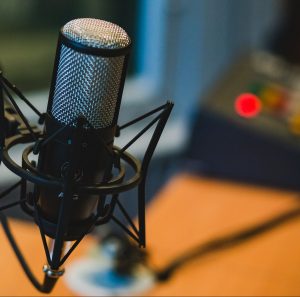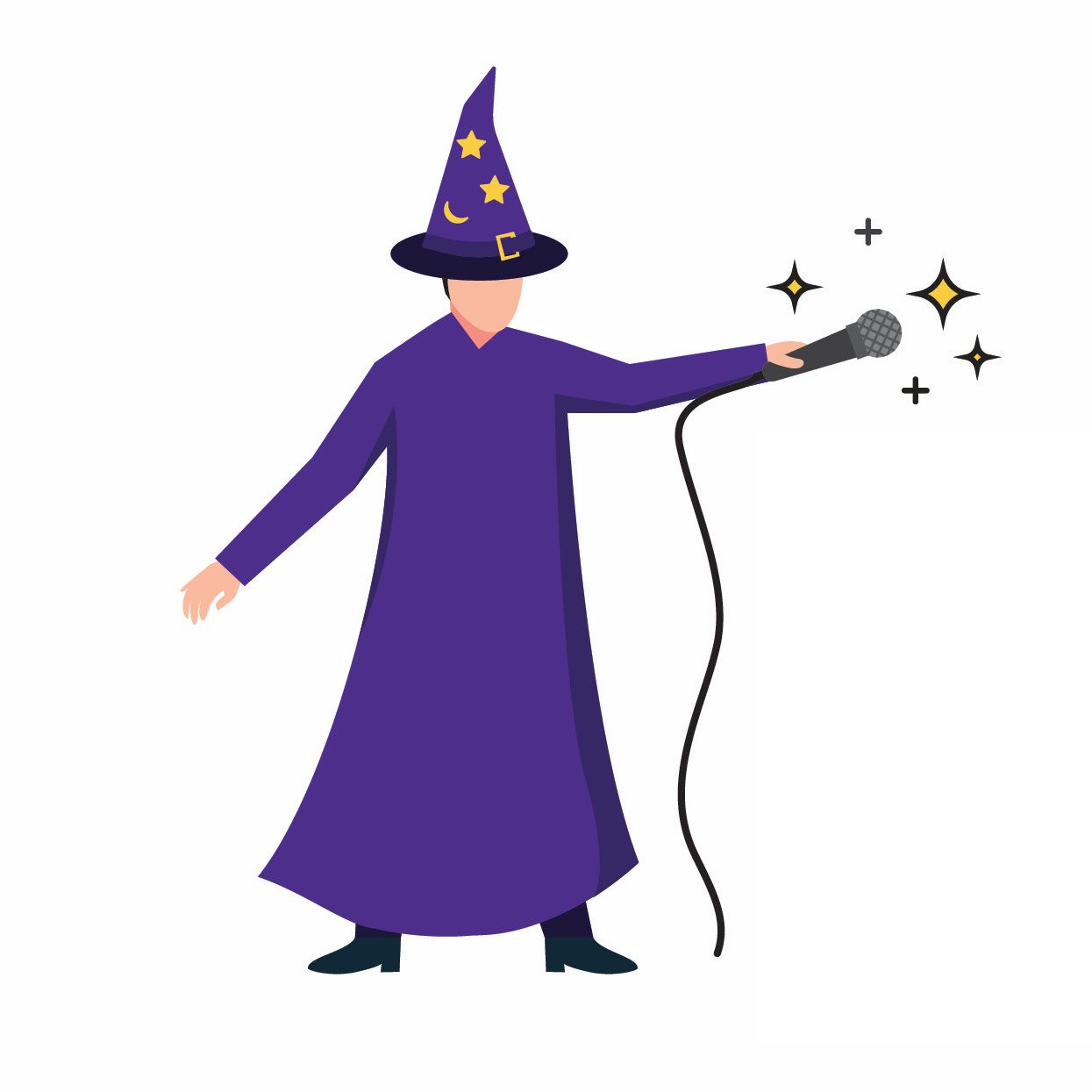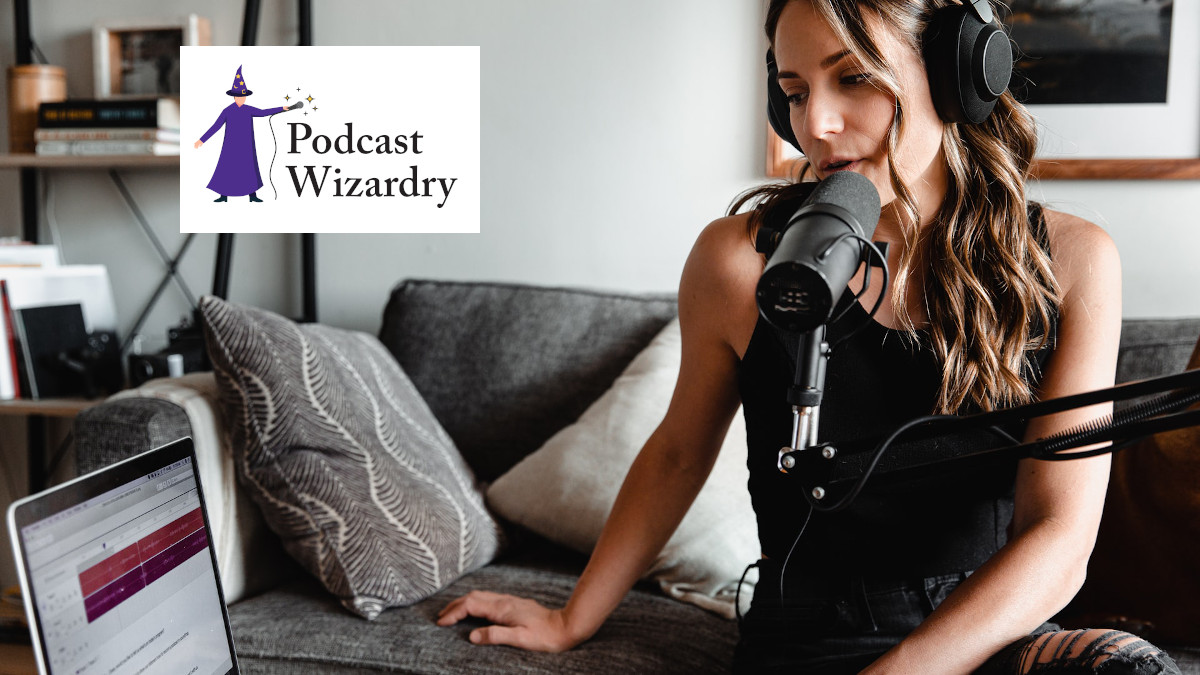How To Be a Good Guest
There are many good reasons to be a guest on someone else’s podcast. In this blog entry, I wanted to talk about things you can do to be an outstanding guest. Interview Valet has a list full of general and inspirational advice that is worth reading. Additionally, here are some tips and tricks and things to be aware of before you get behind your mic and turn all the gear on:
Write Your Story

Yes. Write it out. This helps you get another dimension of rehearsal of the things you want to talk about. If you can help it, I suggest even writing it out longhand. Start with a list of talking points and maybe build a short outline for your subject matter, even if you don’t end up using it. Keeping your story fresh in your mind will help you deliver a stronger message to your audience.
Your Talking Points
Your host(s) will have something to say about the stuff they need from you to get ready for your recording session. Personally, I don’t like to make things too scripted, but it helps quite a bit to have some talking points from my guest well in advance of the interview. Why? Because it makes sure that we get to talk about the things that are important to the guest, and they inform my research. So do send your talking points to your host even if they don’t ask for them.
Listen To The Podcast
This is critically important if you’re going to pitch yourself as a guest to a podcast. But it is still important to listen to the podcast, even if you’re already scheduled. Even if it’s short notice. Take the time to learn their rhythm, the overall tone of the production, and general format. Learn what you can about the host(s) and get a feel for the kind of content they offer. You’ll even get an indirect feel for how to relate to the audience. This may help shape your delivery, and it may help you gain more confidence in the overall experience.
Get a Good Microphone

Last night I was looking at a microphone that costs $2,000. You do not need this microphone. You can totally use the microphone that is built into your laptop, but your podcast host(s) will thank you for upgrading the mic you use for recording. Just don’t go nuts when looking at our options. If you’re recording via your computer, you can get decent USB microphones for under $100.
Whatever microphone you end up using, please take a moment to learn a little something about good microphone technique and positioning. Train yourself to speak clearly and distinctly. And while you’re recording, avoid playing with your keyboard or with objects on the table.
Get Some Headphones

This is non-negotiable. As a guest, you should use headphones for all your recording sessions. Proper use of headphones will virtually eliminate room echoes and feedback. Plus, you can monitor your volume levels and hear extra sounds your mic is picking up.
Similar to microphones, you can spend a lot of money on headphones, but you really don’t need to. Just get something that’s comfortable to wear–preferably something that covers your entire ear.
If you’re only going to be a one-time guest then you could probably get away with earbuds. But you should still absolutely use them.
Test Your Gear
If you do acquire some extra gear, set it all up and give it a full-on test run with a friend. Work out the kinks. Make sure you’re sounding your best.
WATER!
You’re about to do a lot of talking. Do not let this be a dry session. Drink plenty of water at least an hour before the session starts, and keep a room temperature beverage on hand during the session. Some people say it’s okay to keep an adult beverage on-hand. But alcohol can dry you out a little. I say save the alcohol for celebrating when your recording session is over.
Coffee? Tea?

No, you should keep water at hand. But my best episodes are merely conversations. I tell my guests to pretend we’re a couple of new friends simply talking over a cup of coffee. It’s their job to tell a story. It’s my job to get them to flesh out the story. But this isn’t rocket science. It’s just a conversation, even if you’re talking about rocket science. Address each other by name. Keep it intimate and genuine.
Empty Your Bladder
Yes. I said it. Even if you only plan on being on mic for 20 min. Go even if you don’t have to.
Get Them To Be Quiet
As a producer/host, it is terribly annoying to be hip-deep in a conversation only to have it interrupted by the sound of someone doing the dishes in the background. Tell the kids what’s up. Get everyone to understand you need a moment of quiet to do this thing and that they should make themselves scarce if they want to be left in the will. Similarly, silence your own phone. If I’m in the room with you, and your phone rings, I’m going to defenestrate it. (Not really. I just like using the word “defenestrate.”)
Sound Dampeners
I talked about this a little in a recent blog post among a list of things you should do BEFORE you start recording. Some people actually record from within their closets. And not because of any social phobias. Closets are generally nice, quiet, isolated, and being surrounded by clothing makes for good sound dampening and echo cancellation.
Take a look around your recording environment. Make an effort to cover hard, flat surfaces with some sound dampening measure (including closing the curtains on your windows). You don’t need to officially sound-proof your room. But you can easily use a blanket, a quilt, or heck, even a moving pad to quiet the echoing surfaces a little bit so your voice is the thing that stands out to your listeners.
Vocal Crutches
We all need help with this. All of us. We all have an, um, tendency, to um, you know, give ourselves these little, ah, spaces when we’re, you know, talking.
Speaking as an editor, let me tell that it is MUCH easier to remove silences than it is to delete every vocal crutch. Be okay with silences to give yourself time to think. Take a breath and remember you’re on mic because your words matter. If your host is a pro, they’ll also be okay with extended silences. Vocal crutches can jeopardize your clarity. Some people get some public speaking training to recognize and minimize the use of vocal crutches.
Spread The Word

When your episode goes live, tell everyone in the world about it. Don’t rely on your podcast hosts to do all the publicity. They’ll actually be grateful for your assistance in widening the circle of exposure to your brilliance. So tell your friends, tell your family. Heck, tell your neighbor and their neighbor. Get on social media, do the website thing, email everyone…
Contact Us
I’m always happy to talk with folks and provide pointers on How To Be A Good Guest. Producing a podcast involves a number of moving parts and coordination of resources. If you’re thinking about podcasting but aren’t sure where to start, we can help. Please send us a message so we can put together the right production for your purposes. Together, we’ll make sure your story sounds good (quality), and is easy to understand (resonates with your audience).

